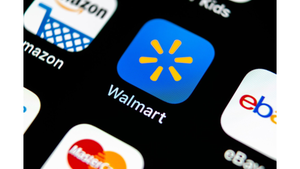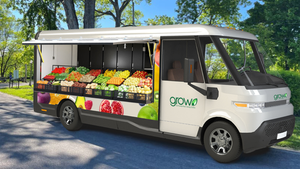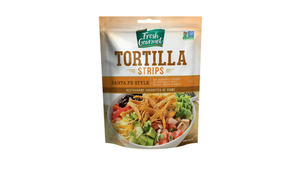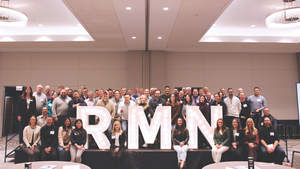Ron Burkle: ‘Fitting Things Together’
THOUGH RON BURKLE'S INTELLECTUAL INTERESTS are clearly in making financial investments in a variety of businesses, his emotions are wrapped up in the supermarket industry. I like investing more than anything else, Burkle told SN in a 1995 interview, but supermarkets get into your blood. Asked why he has rarely taken the role of chief executive officer in the companies he's owned, Burkle told SN, I'm
April 5, 2010
ELLIOT ZWIEBACH
THOUGH RON BURKLE'S INTELLECTUAL INTERESTS are clearly in making financial investments in a variety of businesses, his emotions are wrapped up in the supermarket industry.

Ralphs was part of Yucaipa’s consolidation of Western supermarket chains that were eventually sold to Kroger Co.
“I like investing more than anything else,” Burkle told SN in a 1995 interview, “but supermarkets get into your blood.”
Asked why he has rarely taken the role of chief executive officer in the companies he's owned, Burkle told SN, “I'm not as interested in day-to-day operations as I am in formulating the strategy of how things fit together.”
Burkle — managing general partner of Yucaipa Cos., Los Angeles — got his first taste of the industry when he worked as a box-boy at Stater Bros. Markets, San Bernardino, Calif., when his father Joe Burkle was a district manager and later president there.
After studying finance with Warren Buffett, Burkle tried to buy Stater in 1982 but was rebuffed.
After a handful of smaller investments, Burkle set out to make his mark on the industry by consolidating the West Coast and the Southwest between 1988 and 1999, using Food 4 Less in Southern California as the core around which Yucaipa acquired and successively merged Ralphs Grocery Co., Boys Markets, Hughes Markets, Foods Co. and ABC Markets in Southern California; Cala Foods and Bell Markets in Northern California; QFC in Washington; and Fred Meyer in Oregon with Smitty's in Arizona and Smith's Food & Drug Co. in Utah — and then sold the whole kit and kaboodle to Kroger Co. for $13.5 billion in 1999.
Yucaipa also acquired Dominick's in 1995 and sold it to Safeway three years later. When Safeway put Dominick's on the market in 2003, Burkle offered to buy it back at a lower price than Safeway had paid Yucaipa, and ultimately Safeway decided to hold onto the asset.
Yucaipa flirted with investments in Fleming in 2001 and Kmart in 2002 — with an eye toward putting the wholesaler and the retailer together to facilitate Kmart's expansion into food — and made money on both, Burkle told SN.
In 2005, Yucaipa bought a stake in Wild Oats Markets, Boulder, Colo. However, when Wild Oats got a buyout offer from Austin, Texas-based Whole Foods in 2008, Yucaipa approved the deal, sold the company for cash and turned its focus solely on the Northeast.
Yucaipa began acquiring Pathmark stock in 2005. In an interview that year, Burkle told SN he was drawn to Pathmark “because its prime locations, high store volumes, talented associates and loyal customer base make it a key asset in that market and a viable platform for future consolidation.
“With Pathmark as a base, we would hope we could acquire other companies and lead consolidation in that part of the country. We've done add-ons everywhere else we've invested, and we love doing that.”
Yucaipa approached A&P about a buyout, he said, but while A&P wasn't interested in being acquired, it was interested in buying Pathmark, which it did in 2007, with Yucaipa gaining a 27.6% equity stake.
Yucaipa also has a small investment — less than 6% — in Whole Foods “because I've always thought it was a great company,” Burkle said.
“When the market crashed in 2008, I called John Mackey [Whole Foods' chairman and CEO] and told him I wanted to buy some stock and be a passive shareholder. We had a couple of good conversations, and then two months later he did a deal with Leonard Green [giving the Los Angeles-based investor a 17% stake in the company].
“We bought some Whole Foods stock priced between $7 and $10 a share and sold a lot of it for something between $28 and $36, and we still own some,” Burkle noted, though he said he doesn't play any advisory role there.
Burkle said he had made an offer to acquire Boise, Idaho-based Albertsons in 2006, before Supervalu acquired the most profitable assets and a separate coalition of buyers bought the less profitable assets.
“We didn't think Supervalu had the vision to operate those stores or the timing to make it work, and the market agreed with us, so when the stock price dropped, we filed the paperwork to buy some stock, and the company made the filing public, which pushed the stock price back up again,” Burkle recalled.
“But I did meet with company management several times and offered some suggestions, and they implemented some of our ideas,” Burkle said, though he declined to be more specific.
He said Yucaipa no longer has any material holdings in Supervalu.
About the Author
You May Also Like






